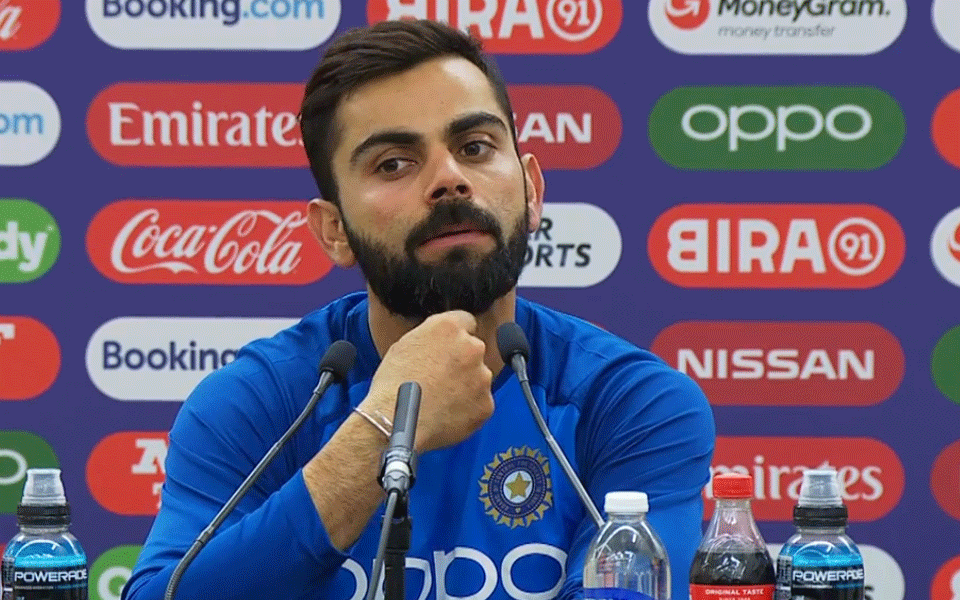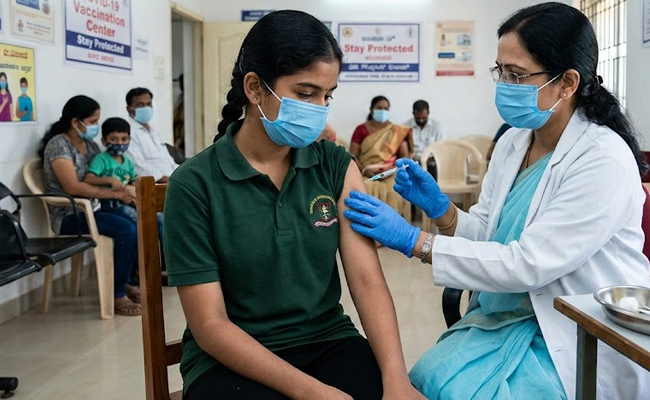Mumbai, July 29: Indian captain Virat Kohli on Monday categorically refuted rumours of a rift with his deputy Rohit Sharma, saying "people feeding off lies" are being disrespectful to the players' personal lives.
After India's ouster from the World Cup, stories of fissures in the Indian camp emerged with claims that Rohit and Kohli are not seeing eye to eye.
Theories of split captaincy were also floated.
"In my opinion, its baffling. It's absolutely ridiculous to read these kind of stuff, that comes out there. I have been to public events where we have been praised and here we are feeding off lies, overlooking facts, turning a blind eye to all good things that happened and creating fantasies and scenarios in our head. We want to accept that this is the truth," Kohli said.
Adding fuel to all the speculations was a cryptic instagram post by Kohli's actress wife Anushka Sharma, which was later deleted.
"I have seen this for too long now. Bringing personal lives into the picture. It's disrespectful after a moment. I have played the game for 11 years and Rohit has played for 10 years (12 years) and it's bizarre that people are creating this stuff from outside," the skipper said, with coach Ravi Shastri by his side.
Shastri made a tongue-in-cheek comment about the conspiracy theories.
"Very soon you will hear wives batting and bowling. The way this team plays, no individual is bigger than the game. Not me, not him, nobody in the team. I have a been a part of that dressing room and none of the nonsense is there," the commentator in the former all-rounder came out as he pooh-poohed the rumours.
For Kohli, the Indian team couldn't have performed consistently across formats if there was no camaraderie amongst the players.
"I have also heard a lot of things. Now you can only hear things from outside. If the dressing room environment had been bad, then we couldn't have possibly played the quality of cricket that we played.
"Because I know how the dressing room environment and trust factor becomes important to succeed in international cricket. The journey that we have had in ODIs, in Tests (from No 7 to 1) and T20s, that wouldn't have been possible without camaraderie, respect and understanding," said Kohli, who urged people to come and see the atmosphere in the change-room.
"You people please come to our change room and see, how we speak to a Kuldeep Yadav, how we crack a joke with the senior-most player MS Dhoni. We can't shoot a video and show you guys. It baffles you as a leader, when lies are being floated around to make it look like actually they are believable," Kohli sounded irritated.
He emphatically denied that there could be any awkwardness between him and Rohit due to the events in the past few days.
"If I don't like a person or if I am insecure about a person, you will see it on my face or my behaviour towards the person and that's how simple it is," Kohli said.
"I have always praised Rohit whenever I have got an opportunity because I believe he is that good. I don't know who is benefitting from all of this but we are living, breathing towards getting Indian cricket to the top, and here we get some kind of pleasure in bringing Indian cricket down," the skipper said.
It's time that we all do some introspection, he felt.
"We have to reflect as cricketers everyone can take a step back and think are we creating something that's really not out there. You can't play with that kind of passion if you don't get along with each other. As I said, its baffling and its time that we focus on taking Indian cricket forward," he said.
Let the Truth be known. If you read VB and like VB, please be a VB Supporter and Help us deliver the Truth to one and all.
London (PTI): The UK on Wednesday imposed a study visa ban on four countries accused of using the route as a backdoor entry to seek permanent refuge in the country, as part of a wider clampdown on the soaring rates of asylum applications.
The so-called "emergency brake" on student visas applies to Afghanistan, Cameroon, Myanmar and Sudan, with Afghans also subject to a skilled worker visa ban following a major surge in asylum claims from these countries.
The move comes as UK Home Secretary Shabana Mahmood introduces new legislation in Parliament this week, with the visa brake to be introduced via an Immigration Rules change on Thursday to come into force on March 26.
"Britain will always provide refuge to people fleeing war and persecution, but our visa system must not be abused," said Mahmood.
“That is why I am taking the unprecedented decision to refuse visas for those nationals seeking to exploit our generosity. I will restore order and control to our borders,” she said.
According to official statistics released by the Home Office alongside the visa ban announcement, asylum applications by students from Afghanistan, Cameroon, Myanmar and Sudan rocketed by over 470 per cent between 2021 and 2025 – making them among the most likely nationalities to claim asylum.
Meanwhile, the number of Afghans on work visas claiming asylum now outstripping the number of visas issued.
In what has been described as an “unprecedented step”, the Home Office said it will end sponsored study visas from all four countries and skilled worker visas for Afghan nationals.
“Tough action is required as asylum claims from legal routes have more than trebled since 2021 – making up 39 per cent of the 100,000 people who applied last year. In total, 133,760 people have claimed asylum after arriving legally in the past five years,” the Home Office said.
It said these refugees end up having to be accommodated at the expense of the British taxpayer, with an “above average proportion” of people from the four countries claiming destitution.
“Asylum support is currently costing more than 4 billion pounds a year – with nearly 16,000 nationals from the four countries currently supported at public expense, including over 6,000 in hotels," it added.
According to official data, between 2021 and the year ending September 2025, the proportion of Afghan asylum claims to study visas issued was 95 per cent, applications by students from Myanmar soared 16-fold over the same period and claims by students from Cameroon and Sudan spiked by more than 330 per cent.
The government pointed to its success in reducing student asylum claims by 20 per cent over the course of 2025, but stressed that further action is needed as those arriving on study visas still make up 13 per cent of all claims in the system.
The visa ban announcement comes on the back of Mahmood's announcement earlier this week that asylum status in the UK will be temporary, to be reviewed after 30 months.





